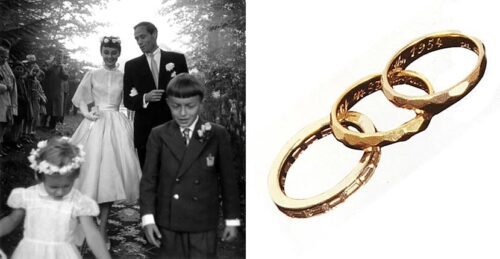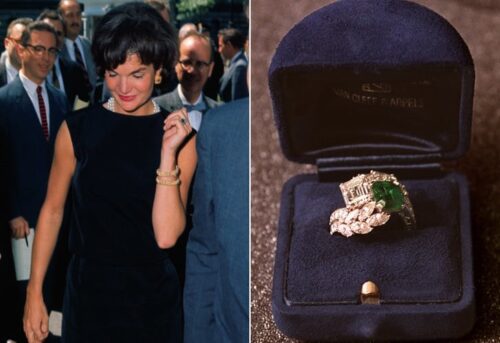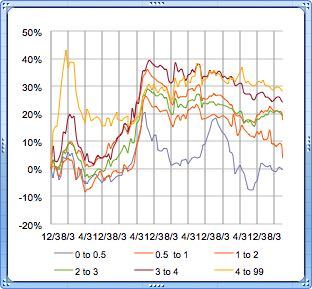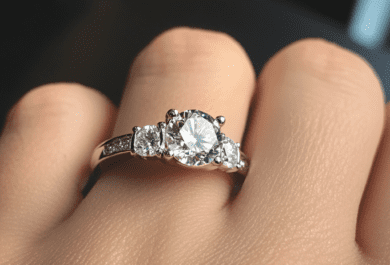Image: Mnmuffin did it right!
Should you consider vintage engagement rings?
There’s something deeply romantic about vintage engagement rings. Each piece tells its own story, of love spanning time, and they bring an almost mystical quality to the engagement. Vintage engagement rings, standing apart from the fashion trends of the moment, tend to be unique. And you know they stand the test of time. What’s more, antique or vintage rings are often less expensive than their contemporary counterparts.
Indeed, vintage rings are loved so much by so many, that we have a dedicated section for chatting about vintage jewelry on our forum.
However, before you make your mind up that this is the option for you, it’s important to learn a little more about vintage engagement rings.
What is a vintage engagement ring?
Typically, we describe rings as vintage if they were crafted in the 100 years between around 1830 and 1930. However, it’s also fair to say that rings from as recently as the 1960s and 1970s are being considered vintage too. If the ring is at least 20 years old, includes gemstones and precious metal, and is at least second-hand then it is a vintage engagement ring.
Styles and fashions change through the years. And this is true of engagement ring and jewelry fashion too.
Let’s explain a little about what you may expect from the different periods of history:
Victorian engagement rings
Victorian engagement rings date from around 1835-1900 and are typically set in either rose or yellow gold. However, the designs can be quite variable; from the very simple to exquisitely intricate. The ‘mine cut’, which includes an extra facet, is quite iconic of engagement rings of this time.
Edwardian engagement rings
Rings created between 1900 and 1920 are described as Edwardian. Here we started to see platinum become far more popular, and jewelers began to really show off their skills in terms of filigree and lace detailing. Diamonds, featuring a rose-cut, were the star of the show, but sapphires also frequently made an appearance alongside them.
Art Deco engagement rings
Unsurprisingly, rings in the Art Deco period (1920-1930) featured the striking geometric look of the era. There was a sharp move away from the subtleties of the Edwardian era with the introduction of colorful gemstones, albeit still on a platinum band. Many couples today, who say they are looking for vintage engagement rings, are actually looking for Art Deco rings.
War time and post-war engagement rings
The rings of the 1940s were, in many ways, what we probably think of as the ‘classic’ engagement ring. A round-cut center stone took pride of place, largely thanks to the infamous De Beers ‘Diamonds are Forever’ campaign. There was a shift back to gold bands, due to the difficulties obtaining platinum at the time. As the 1950s arrived, there was a shift towards larger pear-cut diamonds. It was then that Audrey Hepburn’s engagement ring appeared, setting the trend for three stackable bands.

The Swinging Sixties and beyond
Art Deco saw its first resurgence in the 1960s, and with it Asscher-cut and emerald-cut center stones. Color became important again following Jackie Kennedy’s ring. The emerald-cut continued to be popular throughout the 1970s.

What you need to know when choosing vintage engagement rings
The stone and metal
While the setting and first looks of the stone will attract you to the ring, it’s best to go slowly and make sure you are choosing a ring which is in a good condition, and worth the price. You are probably familiar with the concept of ‘tough as diamonds’. It’s true; diamonds are notoriously hard-wearing and therefore do, indeed, last forever. However, many vintage rings use softer stones, and certainly softer metal. The result is that you’ll need an expert to examine the ring to check for cracks or any sign of damage.
It’s also important to get a diamond expert to look at any diamond in the ring. Techniques for evaluating diamonds weren’t previously as advanced as today and flaws could be missed. This, combined with different fashions for cuts, means that it is harder to assess the value of these diamonds.
Lastly, make sure you have the metal checked. Costume pieces are often sold alongside precious metal and it can be difficult for you to tell the difference between plating and solid gold and platinum.
Replicas
Due to the classic and iconic nature of many vintage engagement rings, they are popular for creating replicas. This in itself isn’t a problem – if you know that is what you are getting. You should know if the ring you are choosing is replica and modelled on an antique design, or whether it is actually a vintage piece. Make sure you check.
Craftsmanship
As with modern rings, not all jewelers are created equally. You’ll want to be sure that the ring has been crafted by a highly skilled jeweler.
Settings
As with contemporary rings, the setting can really change the overall look of a diamond. You can therefore achieve the look of a larger diamond, simply by choosing the right setting. Rings from the 1930s and 1940s often have intricately carved bands which have the effect of making the diamond look bigger.
Fashion
Fashion tends to determine the price of vintage engagement rings. Around 10 years ago, there wasn’t such a huge call for Art Deco engagement rings as there is today. As a result, they were easier to find, and cheaper. Now, you can expect to pay around 3-4 times the amount you would have paid for an Art Deco ring a decade ago.
Where can you buy vintage engagement rings?
This is such a popular question on our forum that it has its own dedicated thread. Here you will find a long list of vendors that others have found useful in their search for vintage engagement rings. Make sure you choose a reputable jeweler, and check what certificates they provide, as well as their returns policy. It’s worth spending some time reading our Education Section so that you have some idea about buying diamonds.
It can be useful to have some idea of the historical period you’re looking for, or some other rings you’ve seen that you like. Our community users share pictures of their vintage rings on a forum thread called ‘It’s so me’ Antique Dream Piece. You’ll find lots of inspiration there.
If you’ve got any questions about buying a vintage engagement ring then just head on over to the Antique and Vintage Jewelry board.
What is your opinion, is a vintage ring better than new? Let us know in the forums at PriceScope!

By PS Staff














